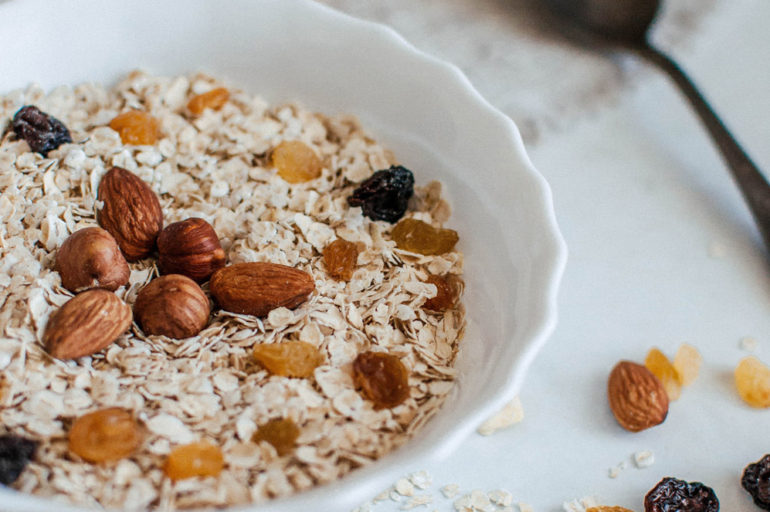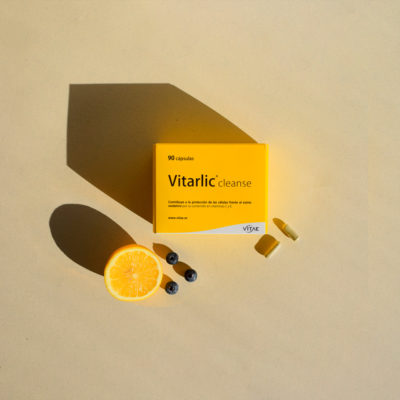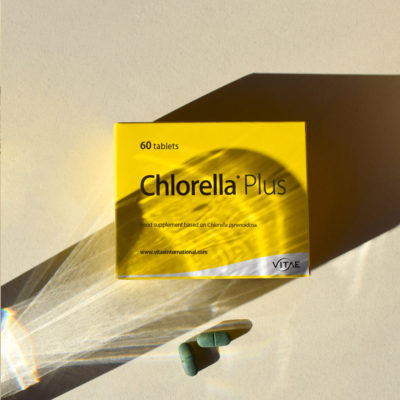Dr. María Pérez, a doctor in holistic, natural and biological medicine, is a specialist, among many other things, in energy nutrition and a professor of natural cooking. As she says, she teaches to use food according to the nature of each person, imbalances or pathologies or simply with the aim of maintaining our health and increasing the energy to strengthen our immune system.
On this occasion she explains us what the energy nutrition consists of and how it can influence states of stress and anxiety.
Energy nutrition takes into account, in addition to the biochemical, organoleptic and nutritional components of each food, its energy and vibration, which we can simply classify as contractive or expansive, centripetal or centrifugal, yang or yin. This means that when we eat a certain food, for example, an egg, in addition to providing us with proteins, fats, vitamins and minerals, it produces contraction and density.
Contractive and expansive energy
The contractive energy is a centripetal energy, that is, it goes inside the body where there is slow, dense and heated vibration, it is a more condensed energy. Excessive contractive energy will produce tension, irritability, impatience, aggressiveness and excess appetite. However, the expansive energy is centrifugal and superficial, it accumulates in the exterior and superficial parts of the body, its vibration is fast, expands and cools down, and in excess it produces dispersion, confusion, tendency to depression, lack of appetite and energy.
Alcohol, for example, is very expansive, that is why it is usually taken during parties and celebrations or to achieve that “decompression effect” as makes us feel more “happy” and less shy, etc. That is, it gives us a more “open” energy. However, a contractive energy such as that of the egg or the meat, will cause the opposite, it goes “inside”, it densifies us but also makes us more congested.
The contraction energy is an energy that gives us internal heat and the expansive energy cools us. The fruit in general, with an expansive and cold energy, is usually taken to refresh ourselves, especially in summer with the aim of counteracting excess heat. In winter, however, we usually cook warm meals to nourish ourselves and warm the body, especially our kidneys, which is where our essential energy comes from.
That is, each food will provide our body with different energies, different body temperatures, moods, emotions, a greater or lesser degree of vitality.
To work on the “symptoms” we can also use energy nutrition to regulate the energies that are altered and thus, energy flowing harmoniously through all our organs, helping the body find its own balance and homeostasis.
The constitution and the condition of each moment will determine the type of food and the most suitable preparation.
Stress and anxiety
Energy moves constantly but not with the same intensity and at the same times. According to TCM (Traditional Chinese Medicine) the seasons and emotions are also related to the different organs.
During spring, when purification or detoxification is importabt, there is a greater openness of nature, flowers, trees, etc. The liver and gallbladder are those who begin to take more prominence and the predominant emotion when the liver-gallbladder is in imbalance is anger, irritability, tension and contraction. In other words, a liver and gallbladder that are not regulated or harmonious will cause us much more tension and difficulty in adapting to situations of stress or change. However, when in balance it will make us more patient, creative with a clear mind and more flexible.
Foods that aggravate this tension and irritability are excess fat, fried foods, nuts (except almonds, which are more refreshing), dairy products and animal protein.
Stress has a lot to do with the adrenals, which in turn have a lot to do with the kidney, which passes its energy to the liver. If during the winter we have not taken good care of the kidney and it is in deficiency, logically, the liver will not have enough energy and it will be difficult for it to flow that energy towards an action and adaptation to changes.
Now, in spring, you have to start changing your diet, eat less saturated fat, avoid eggs, meat and dairy products and eat more green leafy vegetables such as celery, leek, asparagus, artichoke and especially bitter vegetables such as radishes, pickles, algae in all its varieties, especially wakame, arame, sea lettuce, whole grains such as wheat – kamut, spelled, candeal – couscous, barley, corn, quinoa, bulgur and small amounts of medium and long grain brown rice, increase vegetable protein and legumes so that our liver is lighter and we can make better decisions. A very effective antidote to sedate the energy of the liver is to drink a large glass of apple juice. If our energy is stuck or in deficiency, it will be difficult for us to adapt to this change and infections, colds, etc. can appear.
It is time to start introducing seasonal fruits boiled, steamed, macerated with a pinch of salt and generally lighter cooking such as boiled, steam, short sautéed, sprouted. The flavor that will help our liver will be bitter and spicy, helping to eliminate toxins, such as watercress, nettles, endive, endives, dandelion leaves, radish leaves, turnips, chives, etc. Vegetable creams can be a little colder and we can introduce a little bit of crude oil that begins to refresh us so that our liver is more active.
In states of stress or anxiety as energy does not flow properly, the body tends to abuse of contractive foods. That excess will cause us even more imbalance.
We must listen to our body and be in harmony with nature, respecting its cycles and eating local and varied food according to each season.
Chewing
Digestion begins in the mouth and normally, when we are in situations of stress and anxiety, we have very few enzymes and digestive energy strength. The teeth also have an electrical charge and a positive / negative polarity, which during chewing will help to multiply their energy effect, which will facilitate digestion.
If we do not have access to high quality food, even if we accompany it with vegetables (which provide us with vitamins and minerals that will favor the transmission of the energy flow) through chewing, we can transform and recharge a food that is not too alive in one that is stronger energetically, and vital, and therefore will be less damaging. It can also happen the other way around, if we eat organic food, without pesticides etc. but we do not chew it properly, we will not obtain all its properties.
Other suggestions to get the more energy nutrition from food
Not drinking water during the meal is key because water dilutes the action of digestive enzymes and can cause fermentation, bloating of the belly, alteration of the microbiota that can lead to putrefaction, intestinal dysbiosis and permeability of the digestive membrane.
It is also important to eat quietly and calmly, without a computer or television, to become aware of what we are eating. Doing work meetings while eating is not the most appropriate thing to do. If possible, find natural light and chew a lot.
Finally, we have to try to make half the plate green or vegetable, complementing with a little whole grain cereal and lighter proteins (less animal protein and more vegetable), reducing salty foods and helping with fermented foods such as sauerkraut, among others.







